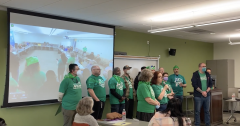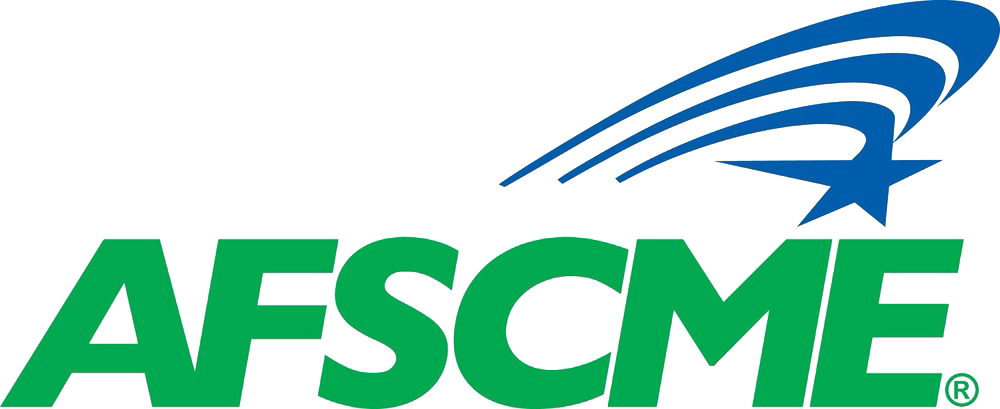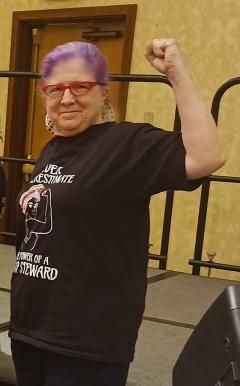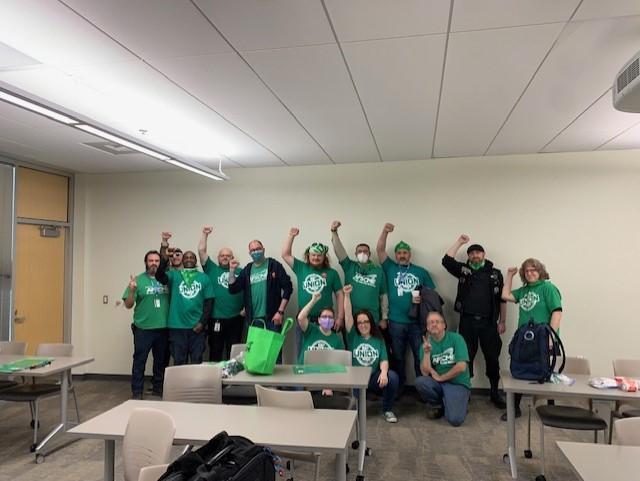 A group of WFSE Local 304 members stood before the Seattle Colleges Board of Trustees (BOT), dressed in AFSCME green shirts. They had traveled from several campuses, taken paid leave and sacrificed time with their families to convey their message to the Colleges’ leadership: It’s time for the winter closure policy to end.
A group of WFSE Local 304 members stood before the Seattle Colleges Board of Trustees (BOT), dressed in AFSCME green shirts. They had traveled from several campuses, taken paid leave and sacrificed time with their families to convey their message to the Colleges’ leadership: It’s time for the winter closure policy to end.
“Classified staff at the Seattle Colleges call for an equitable winter closure—or an end to the winter closure,” said Dawnelle Wilkie, an administrative assistant and Local 304 member.
Winter closure, introduced as a cost-saving measure, added several days to each end of the holiday break—but while administrative and exempt staff were given additional days of leave, lower-paid classified staff were forced to use their existing earned leave.
Winter Closure Contrary to Equity and Inclusion
When the colleges did have to bring classified staff in for necessary work during the closure, the college was paying them at a higher rate than usual, undermining the goal of cutting costs.
There were cultural elements at play, too: at a group of colleges that proudly state that over 34 languages are spoken on their campuses, members from diverse ethnic and religious backgrounds were frustrated that they were forced to use hard-earned leave for a winter holiday they didn’t celebrate.
Seattle Colleges is the largest community college district in the state, with three campuses that serve about 45,000 students each year. The institution’s Seattle Promise program has earned recognition for offering free tuition to graduates of Seattle high schools, helping to fill skill gaps in the labor market and make higher education more accessible.
WFSE members play a key role in the colleges’ mission, supporting staff and students at each campus—and for them, the winter closure was a hot-button issue. It highlighted a gap between the colleges’ stated values of inclusivity and their treatment of their lowest-paid workers.
“This is something we can change right now.”
“Winter closure was a huge equity issue,” said Local 304 President Johnny Dwyer. “We’re not getting the same consideration as other groups at a college supposedly dedicated to equity and inclusion.”
Dwyer has been an IT worker for seven years.
“I serve as the primary point of contact for a help desk that serves the campus community,” Dwyer said. “I connect people with the tech resources and support they need to their jobs, teach their classes, and most importantly, to help students be able to do their coursework.”
The winter closure policy kept surfacing in the local’s regular member action team (MAT) meetings. Unlike wages and other concerns that are bargained in coalition, the winter closure was a policy put in place by college management. That meant management also had the power to end the policy.
“We went to people’s offices to talk,” said Dwyer. “We wanted people to understand, ‘this is something we can change right now.’”
“This matters, because you’re hurting the lowest-paid folks.”
The MAT team hosted lunch-time meetings about ending the winter closure. They recruited members to attend the BOT meeting and deliver solidarity statements. The local’s members are distributed between the three campuses, and volunteers would need to use their own paid leave to attend—but over twenty signed up.
Sandy Long, the program coordinator for liberal studies, was among those who attended. Long
has worked at the Seattle Colleges helping students and performing critical data analysis and other tasks for 24 years.
“We had to rally for people and say, ‘this matters, because you’re hurting the lowest-paid folks,” Long said.
Long and the other WFSE members stood before the BOT to deliver their message.
“You could tell it was impactful,” said Dwyer.
Victory!
The next month, members received notice from the colleges’ human resources department that the winter closure policy had officially been ended.
Members of another Seattle Colleges union employed a similar direct-action strategy soon after to address some of their own issues.
Dwyer credits the MAT team’s success to their strong relationships and a willingness to take a risk.
 “Unions are a vehicle through which we can affect change,” said Dwyer. “The workers, you and me, we make everything go. We know that and we’re using that power to make a better world.”
“Unions are a vehicle through which we can affect change,” said Dwyer. “The workers, you and me, we make everything go. We know that and we’re using that power to make a better world.”
Member action teams are making change happen throughout Washington’s public agencies. Learn more about joining or forming a MAT and download a free toolkit to help you start building power on the ground at your workplace.




